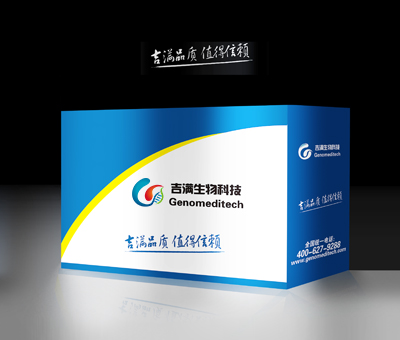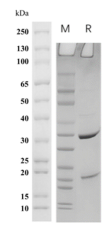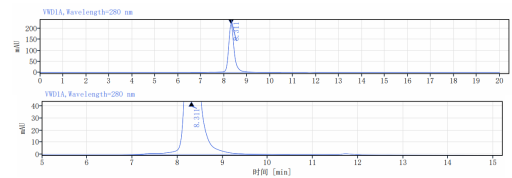产品编号:GM-87896MAB
产品名称:Anti-mouse CD4 RIgG2b Antibody(GK1.5)
目录价:询价

产品编号:GM-87896MAB
产品名称:Anti-mouse CD4 RIgG2b Antibody(GK1.5)
目录价:询价

GM-87896MAB-1mg / 1 mg
GM-87896MAB-5mg / 5 mg
GM-87896MAB-25mg / 5 mg*5vials
GM-87896MAB-50mg / 50 mg
GM-87896MAB-100mg / 50 mg*2vials
Expression System | CHO |
Aggregation | < 5% as determined by SEC-HPLC |
Purity | > 95% as determined by SDS-PAGE |
Endotoxin | < 1 EU/mg, determined by LAL gel clotting assay |
Sterility | 0.2 μm Filtered |
Target | CD4 |
Clone | GK1.5 |
Other Names | L3T4, Ly-4 |
Source/Isotype | Monoclonal Rat IgG2b, Kappa |
Application | / |
Description | The CD4 gene belongs to the Immunoglobulin Superfamily (IgSF), and its members typically possess immunoglobulin-like domains that are involved in intercellular interactions and signal transduction. CD4 plays a critical role in the immune system and is primarily expressed on CD4 positive T cells, monocytes, and dendritic cells. Researchers often use anti-CD4 antibodies (either monoclonal or polyclonal) to label and isolate CD4 positive T cells, and these antibodies are widely used in techniques such as flow cytometry, immunohistochemistry, and immunoprecipitation. |
Formulation | Phosphate-buffered solution, pH 7.2-7.4.
|


产品编号:GM-87896MAB
产品名称:Anti-mouse CD4 RIgG2b Antibody(GK1.5)
目录价:询价

GM-87896MAB-1mg / 1 mg
GM-87896MAB-5mg / 5 mg
GM-87896MAB-25mg / 5 mg*5vials
GM-87896MAB-50mg / 50 mg
GM-87896MAB-100mg / 50 mg*2vials
Expression System | CHO |
Aggregation | < 5% as determined by SEC-HPLC |
Purity | > 95% as determined by SDS-PAGE |
Endotoxin | < 1 EU/mg, determined by LAL gel clotting assay |
Sterility | 0.2 μm Filtered |
Target | CD4 |
Clone | GK1.5 |
Other Names | L3T4, Ly-4 |
Source/Isotype | Monoclonal Rat IgG2b, Kappa |
Application | / |
Description | The CD4 gene belongs to the Immunoglobulin Superfamily (IgSF), and its members typically possess immunoglobulin-like domains that are involved in intercellular interactions and signal transduction. CD4 plays a critical role in the immune system and is primarily expressed on CD4 positive T cells, monocytes, and dendritic cells. Researchers often use anti-CD4 antibodies (either monoclonal or polyclonal) to label and isolate CD4 positive T cells, and these antibodies are widely used in techniques such as flow cytometry, immunohistochemistry, and immunoprecipitation. |
Formulation | Phosphate-buffered solution, pH 7.2-7.4.
|

